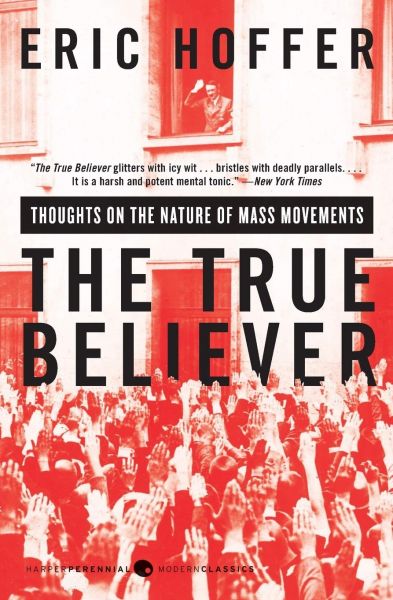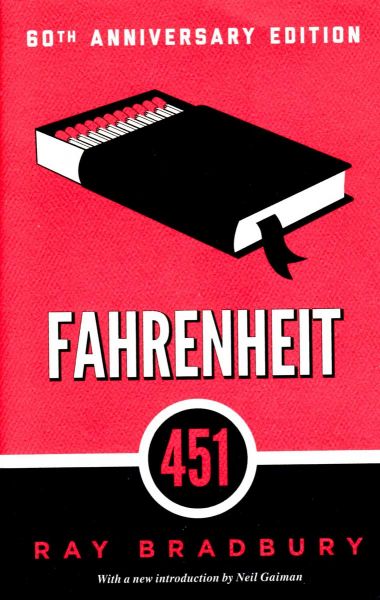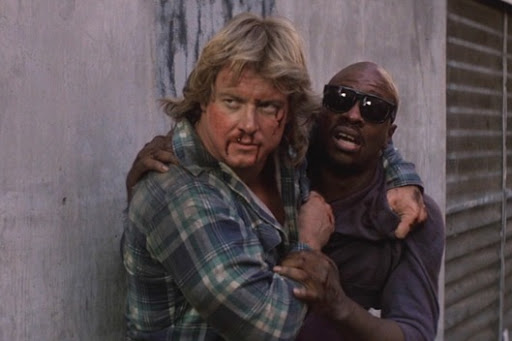Fixing the Bi-polar Nation
FIXING THE BI-POLAR NATION
I have pondered over a way to express America's political conflict, that all Americans can grasp, and I came across this book on Amazon. Look at the woman in the painting and notice that, if you cover the right-side of her face, the exposed left-side shows a receptive eye, wide-open and beckoning to the beholder, ready to listen and perhaps all in love. Now cover the left-side of her face. The right-side shows an eye narrowed by suspicion and anger.
The totality of the face suggests a woman under stress, facing frustration at every turn, conflicted in mood and intention. Either side of her face looks better than the whole. Consider also how the woman's face affects the viewer, as uncontrived and personal, suggesting that a spouse or partner experiences her conflicts like everyone else--perhaps more so, since she covers up her real emotions in public.
Her conflict, no doubt, slows down her forward progress. No sooner does she start to trust someone on her left-side, her right-side comes along and casts doubt and suspicion on the relationship. The lack of cooperation thwarts her--in the workplace or at home.
The subject in the painting is Cheryl MacDonald, the wife of Dr. Alfredo Zotti, a psychiatrist in Australia and the author of Got Bipolar?. Cheryl has the illness herself. Dr. Zotti, an artist in his spare-time, painted her portrat for the front cover. Her face up-close has an imploring look, as if to say, "Release me from this!"
Americans may recognize elements of her illness in the frabric of the national culture--Bi-polar Disorder on a national scale. If only Americans could reside in a foreign country and view the nation through the eyes of the foreign media. Maybe then they would recognize our disunity as a collective mental illness, a national tragedy.
Dr. Joel Hochman, who testified at the Manson Murder Trial in 1969, told the courtroom that Manson's group "may be suffering from a condition of folie à famille, a kind of shared madness within a group situation." Along with the shared madness is a group inertia that always cripples large numbers of people, faced with the need to make make changes of national proportions. How can one guy make a difference? The most we can do is voice our concerns about the lack of unity and the need to regain it, talk about the need for a holistic perspective in the solution.
Society works best as a harmonic unit. the Creator hard-wires people to trust and believe, to work and move forward, and to enjoy the fruits of their labor. Throw doubt and supicion into the equation, and it's like throwing a wrench in the workings of the human culture. The society does not work as well. Make the disunity that results from the suspicion bad enough, and people will ponder unconsciously how to neutralize the nay-sayers. That effort may affect how they choose a candidate in the voting booth.
The Bi-polar Society
Poorly informed people think of Bi-polar Disorder as out-of-control emotions. they get out of whack, become extreme or over-reactive. Zotti counters that our emotions only respond to verbal input from the unconscious-self. Our thought-patterns grow out of a sense of self, our souls, or spirits. We carry in ourselves an orientation to life, and our emotions grow out of the verbal elements of that orientation.
Zotti describes orientation as "stories and worldviews that matter a lot, because they can influence our thinking or functioning. Stories and worldviews take on a life of their own, even though they are abstract things, and we absorb these storeis and worldviews with out brain."
But Zotti continues that the actions of the society cause the stories and worldviews to get rooted in mistrust, with the result that "We may see enmies where there are none; we may misinterpret people's true intentions. . . . We may see enemies, faluure, and disaster everywhere we look."
If I had a billion dollars to invest in any kind of research I wanted, I would investigate the net effect of hours of cable news, a sort of media-oriented take on Supersize Me. Instead of eating super-sized portions of fast-food meals from McDonald's, you instead have to listen for hours to cable-news without a break. How would people react? Morgan Spurlock, the director and main actor in Supersize Me sticks his head out the car door and pukes on the pavement. The cable-news test-subjects would react differently, I believe. They would hide in the bathroom weeping, saying "I'm sorry!" or "I'm scared," or even "I am numb. Beam me up, God!" How much panicking and browbeating ca a person take, before he looks like poor Cheryl MacDonald?
Jon Stewart's hard-ass jauntiness grates on a person after several hours, no matter the political orientation. On the other hand, just one hour of listening to cable-news talking-heads tires me. The pseudo-quarrels of commentators with the same political orientation, just to enliven the program, has the same effect that real quarrels have. The sum total of hostile rhetoric that emanates from the legions of cable-nes talking-heads leaves Americans demoralized and pessimistic--in the U.S. of all place! The greatest place in the world to live!
Not even the poorest, wretchedest people of South America and Africa have to endure the daily diet of negativity that Americans suffer through. Call the divergent sides what you will--the Righteous Right versus the Moonbeam Left--the rest of America has to listen to the daily rantings as it navigates through its daily routine. You feel paranoid, negative, and remorseful from absorbing this poison.
But the media is not the problem. the media only explores the emotions that make up our national division. It reflects how members of the public feel about each other. But rather than start an argument with a neighbor, we let the cable-news people do it for us, to give us the necessary catharsis. The talking-heads fight a proxy-war for clueless America, as basically mercenaries. Look at their work history, at how often they change sides.
Zotti doesn't recommend letting other people fight our battle: "It is vital not to run away from our emotions and feelings and not to make other responsible for how we feel. . . . Our emotions and feelings are important and we need to understand them and their causation."
Touch People Where They Live
How do we persuade Americans to get in touch with their feelings. I have a few suggestions, from a book titled Mindhunter, by a retired FBI agent named John Douglas. Most people probably do not remember that John Douglas introduced Americans to the term "criminal-profiler" and started America's sick fascination with serial-killers. In one investigation of a serial-killer, Douglas made the determination that "The killer will have a speech impediment." This statement alone made him soemthing of a cult-figure.
During the early 1980s, the FBI assigned Douglas to Atlanta to assist in its investigation of an unknown suspect who targeted young black males. As the FBI's work continued, evidence mounted that implicated a light-skinned African-American named Wayne Williams.
With his profile in hand, Douglas met with the staff of the Fulton County District Attorney's office to suggest to them how they should conduct their prosecution of Williams. His presentation was a classic. He said bluntly, "You've got to keep him on the stand as long as you can; you've got to break him down because he is an over-controlled, rigid personality. . . . The, when you've worn him down, you have to physically touch him . . . violate his space, and catch him off-guard."
I wish Douglas could do this now in the broader American population. Realtors and builders know that homeowners value house-sites with peace-and-quiet and seclusion. When a neighborhood gets rowdy, homeowners will sell their homes below par and move farther from town, where it is still quiet and secluded. They will keep doing this until there is nowhere else to go.
Someone needs to touch these secluded, overcontrolled Americans where they live before it's too late. Let them erupt in anger at each other, as a sort of controlled burn. Maybe the scariness of it will motivate them to take the disunity of the country more seriously.
We Just Disagree
So to recap, one side of the talking-head war wants you to believe that its political party wants only good, and the other party wants only evil. One party has cronyism and corruption on its side, the other carries thehopes of the free world. The talking-heads never talk about real solutions, only that the other party makes things worse. As incrdible as it sounds, bad news sells better than good news. Good news makes people turn off their devices.
We must remember, at any rate, that real issues lie behind the pugilistic rhetoric. The talking-heads know good and well that neither political party is so absolutely good, and the other so bad. Each has philosophical parameters in its political schematic; but both parties could do a better job if they worked on their own turfs, and left the other side to fend for itself. Simply put, the parties do not have enough common ground to manage together.
The U.S. dilemma reminds me of a Dave Mason song from 1977, “We Just Disagree,” composed by his friend Jim Krueger, about his ex-girlfriend:
There's no good guy; there's no bad guy;
There's only you and me and we just disagree.
Americans also have to acknowledge the core problem, that we just disagree. We have different ideas about how to do things and not enough common ground to govern the nation with the measures that it needs to just survive in a competitive world. Again, the ideas the differentiate Democrats and Republicans have their roots in philosophical parameters that make them incompatible.
We need to move beyond disagreement and divide the country. Like Jim Krueger breaking up with his girlfriend, you admit you just disagree, and then you move on with your life. It may feel like less of a life without his partner to share it with, but he can't change the circumstances. They need to move on and find partnership and sharing elsewhere. You may find some loneliness along the way, but the transition is doable.
Or we can get lazy and fill our heads with a lot of wishful thinking, until the warring sides destabilize the nation, which they will ultimatley do. One side or the other will emerge from the ensuing chaos with nearly unassailable authority. By that time, we will barely recognize the original political parties, only belatedly that they have evolved into a dictatorial functionality.
Not many high-profile journalists want to tackle this kind of analysis. No matter how bad things get, journalists must emanate a confident, business-as-usual demeanor to soothe advertisers and listeners. It does not leave much room for a realistic assessment of the risks of staying together, and it definitely entails some risks.
America has coasted along for the last fifty years, propelled by the success of previous generations. The momentum will not last much longer unless we refocus our initiatives. We can only do that if we resolve the disunity, and this will only happen if we divide into two nations and allow them to reconfigure themselves along coherent philosophical premises.
.
To Build a Nation From Scratch
I know what a Republican nation will look like. People talk about Adam Smith or John Locke as the godfather of the Republican policy platform, but the guidelines have existed for most of a thousand years. Unlike Smith or Locke who wrote as philosophers, the guidelines for Republicanism came into being as a last resort during a period of history defined by wars and conquest, which historians typically describe as the Dark Ages. How could city leaders provide for their people, protect them from the dangers outside, and enable them to support themselves materially from the inside.
The leaders came upon the idea of capitalism and free enterprise out of necessity, The leaders realized that the city needed to crete wealth that the leaders could tax in order to finance the building of fortifications. So they let citizens own real estate and start businesses. The citizens paid taxes for the use of the real estate, and the leaders used the tax revenue to finance the building of fortifications.
In Germany, for instance, many cities that once had a protective wall around them end in -burg. The residents of the fortified cities referred to themselves with the generic name Bürger, in German, and Bourgeois in French. The words evolved over time and took on a more modern meaning for upwardly-mobile, middle-class people, often used in a pejorative way; but the fact remains that capitalism and free enterprise created wealth that financed. fortifications and other structural improvements and brought the Dark Ages to an end.
Erfurt
I learned about historic wealth creation when I visited Great-great-grandfather John Siegling's hometown in Germany, Erfurt. In 1080 A.D., Erfurt fought a devastating war against a neighboring city. Most of the existing city burned to the ground.
The Archbishop of Mainz, which served as the secular as well as spiritual leader of Erfurt, knew that it needed to build a wall in order to defend itself. Such a huge construction prject required capital the Archbishop did not have; so he must have consulted the same people who advised every other forward-looking royal had consulted, in order to find a solution.
The Archbishop did something fairly novel for that time. he allowed the Bürgers in Erfurt to own real estate and do anything they want with it: weave baskets, raise livestock or grow produce, utilize furs and hides, and make money. Each year, the Bürgers paid a tax for the use of the land, and the proceeds went into a general fund that financed the buidling of the city wall.
The Bürgers no doubt grumbled over having to pay taxes, but the wall went up, and they felt more secure inside it. The Archbishop hired on soldiers to guard the walls and man the gates to the city. Each evening, a gatekeeper closed the gates to keep out thieves and marauders.
The growing population developed commercial networks, and as wealth increased, the citizenry decided to build a second wall that encompassed more land. Like other cities that grew up inside fortifications, Erfurt developed its own culture, and it gave everyone who lived there a sense of identity. The walled-city became a model for Western cities. Security and organization permitted a lot of wealth creation. In Erfurt, the Archbishop decided on a motto to guide his actions—libertas et iusticia. We know the term as “liberty and justice for all.”
The growing production of consumer goods increased the reputation of Erfurt and led to commercial contacts with other cities. In time, the other cities found it easier to post commercial representatives in Erfurt, because they had so much trade going on, they needed to maintain contact with the firms there. Maintaining the peace between kingdoms was not easy, but the increase of wealth could only occur during peacetime. This fact gave the leaders an incentive to maintain the peace. Wider market-reach means bigger sales and better money. It is about as simple as that.
Republicans believe in a market economy—both as the means to create wealth, and also to innovate and improve consumer goods. We have had a market economy for so long, we take it for granted. America's Founding Fathers, especially Hamilton gave it an exalted position in political rhetoric, but the Archbishop of Mainz utilized it as a simple act of survival.
Republicans believe that offering consumers a multitude of commercial alternatives to meet their personal needs increases satisfaction. A vendor and a customer agree with an exchange of money. Republicans also think that if you earn it, you get to keep it. We celebrate wealth and encourage social mobility.
Wealth increases a citizen's available choices. We should never apologize for the sense of privilege enabled by wealth. We encourage business start-ups with venture-capital. I doubt any other country in the world has as much venture-capital as the U.S. has. A market economy also allows more business ownership by immigrants, computer-nerds, and clothes-lovers than any other nation on the planet. Anyone can start a business in America--food-lovers, people fascinated by women's accessories, kitchen accessories, and ordinary people who like to sell things have a chance to become wealthy in the vibrant American market.
America specializes in rags-to-riches stories. Americans may not believe in their nation's greatness, but the world's population does. They will do almost anything to get here. They start work and send money home. Remittances by foreign guest-workers in the U.S. to their home countries are the highest in the world. Besides money, the guest-workers send home air fares so family members can join them in America—just so you know that the negative press about opportunity here is false and irresponsible.
The Egalitarian Hob-goblin
Democrats say they want to align American society with the principles of social justice and equality. Just how far they will push this agenda against Republican opposition remains to be seen. Republicans oppose mandatory equality, as they Democrats proclaim it, on philosophical grounds.
The Democrats say they also work from a philosophy. Why anyone thinks that these two embattled philosophies work better in opposition to each other, rather than as two independent countries, worries me, except that many risk-averse people prefer a compromise, even under extreme duress, over separating the country.
Policy differences, the compromisers say, should not allow the philosophy of one political party to dominate the other, but what passes or "compromise" in our nation conceals plenty of domination through intimidation, deception, and wishful thinking.
Thanks to the forthrightness of former President Donald Trump, more Republicans than ever believe the Democrats only want to force equality on them. Democrats want to sic government power on wealthy Americans, cut the wealthy down to size, eradicate all the privileges that wealth enables, and defeat wealth as an unequalizing force.
They cleverly disguise these steps as humanitarian, as steps toward social justice and equality, when in fact they only slake the Democrat thirst for payback, fueled by envy. Democrat rhetoric reminds me of similar words used by the Nazis and Soviets.
Curiously, if the Democrats had to live apart from the Republicans and to make a choice about a governing system, they would want one like the Republicans', that enables personal wealth, commercial choices in the market-place, and social mobility, regardless of the inequality that results. Everyone should see this as a no-brainer. You only select a market economy it because it works.
If you ask people to choose between being equal to everyone else, and the chance to be better than anyone else--you know the rest. Only in a zoo are all the animals treated equally. Humans have a primordial predisposition toward personal achievement. Even rich people who vote Democreat, like Warren Buffet and Bill Gates, care very much if someone else has more money than they have. A human's wanting to be the best respects the laws of nature, as all the world's creatures must. In the natural world, no creature in his right mind strives to be equal with all the creatures; nor should we.
American voters, never mind what social strata, need to recognize the politics of equality as a con-game. It means accepting a blue-plate special kind of life. The government dishes out your rations, and you take what you are given. You do not have to worry that someone else will get more than you. Everyone has to get the same rations, so that no one will stand out as a loser.
 Eric Hoffer, the longshoreman-philosopher, gives the reader a sobering analysis of equality in his classic The True Believer: "Where freedom is real, equality is the passion of the masses. Where equality is real, freedom is the passion of a small minority." The masses, Hoffer writes, "want to eliminate free competition and the ruthless testing to which the individual is continually subjected in a free society."
Eric Hoffer, the longshoreman-philosopher, gives the reader a sobering analysis of equality in his classic The True Believer: "Where freedom is real, equality is the passion of the masses. Where equality is real, freedom is the passion of a small minority." The masses, Hoffer writes, "want to eliminate free competition and the ruthless testing to which the individual is continually subjected in a free society."
 Ray Bradbury, the sci-fi writer, gives his readers a reality-check in his classic Fahrenheit 451. “Surely you remember the boy in your own school class who was exceptionally 'bright'. . . . And wasn't it this bright boy you selected for beatings and tortures after hours? . . . We must all be alike. Not everyone born free and equal . . . but everyone made equal.”
Ray Bradbury, the sci-fi writer, gives his readers a reality-check in his classic Fahrenheit 451. “Surely you remember the boy in your own school class who was exceptionally 'bright'. . . . And wasn't it this bright boy you selected for beatings and tortures after hours? . . . We must all be alike. Not everyone born free and equal . . . but everyone made equal.”
Bradbury maintains that this drive toward equality fuels the eradication of books—the theme of Fahrenheit 451. An egalitarian government acts as “custodians of our peace of mind” to guard us from an “understandable and rightful dread of being inferior.”
Americans, however, should not submit to the "custodians of our peace." We have to respect the laws of nature, like all other humans. We function better free-ranging than we do cooped up in a zoo. Eric Hoffer believed that Americans uphold the utility of freedom, “because of their innate feeling of superiority.” Odd to think that freedom functions best when people feel good about themselves!
Of course, the American exalted sense of themselves does not sit right with everyone. Equality requires that exalted types step down from their pedestal. If they balk, someone should pull them down. That course does not say much for equality as a net-gain for people. Someone could still bamboozle them into accepting it.
Dumbed-down TV Achieves Equality
The RCA Corporation manufactured America's first TV-set in 1947, following years of research in the RCA laboratory. Like most first-models, it had its technical problems and cost oo much for most shoppers. Few realized that RCA had let loose a real monster, a subtle master of trickery, a dream-come-true for hucksters and spin-meisters of all stripes. Spin-meisters may warn Americans about the greed of the rich, or the power of the fast-food commpanies. Seldom do they warn anyone about the power of the TV.
A few authors try to warn Americans about watching so much TV. Their books gather dust in bookstores and Amazon warehouses. They cannot compete against the plethora of advertising in the real world from people who want to help us watch more of it. The Latin expression Caveat emptor! has gained renewed gravitas, thanks to TV.
One of the characters in the novel Fahrenheit 451 explains how TV spins equality:
“[The] bigger the population, the more minorities. Don't step on the toes of the dog-lovers, cat-lovers, doctors, lawyers, . . Mormons, Baptists, second-generation Chinese, Swedes . . . . The people in this book, this play, this TV serial are not meant to represent any actual (people) anywhere. The bigger your market . . . the less you handle controversy. . . . Magazines became a nice blend of vanilla tapioca."
Futuristic novels like Fahrenheit 451, 1984 and Brave New World feature the TV as a vocal-point of a dictatorial government's push toward equality. In effect, TV enables a dumbing-down of people and creates a hollowness in the human culture.
 In Brave New World, published by Aldous Huxley in 1932, government planners infused TV programs with the “Violence-Passion Surrogate” and required everyone to watch. “It's the complete physiological equivalent of fear and rage,” says one government scientist. It has “all the tonic effects of murdering Desdemona and being murdered by Othello, without any of the inconveniences.”
In Brave New World, published by Aldous Huxley in 1932, government planners infused TV programs with the “Violence-Passion Surrogate” and required everyone to watch. “It's the complete physiological equivalent of fear and rage,” says one government scientist. It has “all the tonic effects of murdering Desdemona and being murdered by Othello, without any of the inconveniences.”
People at the low end of the social strata expect the egalitarian ethos to lift them to a higher plain. Instead, it pulls down everybody to a lower plain. To achieve real equality means pulling the culture down to the lowest common denominator of human behavior. In reality, equality is nothing but a con-game to enable a dictatorial set-up.
Like so many other trends in the human society, this one has its roots in antiquity. In Plato's Republic, for example, the philosopher Socrates tells his followers the parable of the Man in the Cave. It is a sort of Stone-age representation of the TV. The Man in the Cave does not particularly want to improve anything. A puppeteer keeps him entertained by projecting the shadows of puppets on the opposite wall with back-lighting. Such a challenged lifestyle. The Man in the Cave is content to watch life as shadows—not even real people but puppets, the Stone-age concept of talking-heads, no less!
Equality for Martians
What if aliens got wind of the human thing about the TV? The action/sci-fi film They Live! directed in 1988 by John Carpenter, shows what might happen. The aliens quietly and insidiously take over TV broadcasts by constructing a special disk on top of a building that works like a TV transmission-tower. It broadcasts a false reality to the humans as the walk the streets of the city, going about their daily business--taking part in their own deception.
The aliens have also studied how broadcasters and advertisers use subliminal messages for their programs and decided to use them in their own broadcasts; so besides creating a false reality, the subliminal messages tell viewers: “STAY ASLEEP”, “WATCH TV”, and “NO INDEPENDENT THOUGHT.” Seen as they are, the messages even look like actors' cue-cards. Since the aliens control the transmissions, the false reality is the only one the poor humans get! The humans may realize they've been had, but they have lived with the false reality of TV for so long, they no longer have the spirit to reject it. It is a scary scenario, at any rate. Control the TV, and you control the humans.
Only with special sunglasses can the humans see the aliens. Rebel scientists in clandestine laboratories produce the sunglasses and also hack into the aliens' TV broadcasts. A blind church minister, played by Raymond St. Jacques, serves as their spiritual leader. He warns that the aliens have "blinded us to the truth," then adds reassuringly that, even though he is blind, “The Lord has let me see!"
 The main character in They Live! is a transient construction worker who calls himself “Nada,” played by professional wrestler Roddy Piper. He and another transient worker Frank Armitage, played by Keith David, become friends; but they fall out when Nada goads Frank to put on the sunglasses. Frank refuses. Nada insists he put them on, but Frank refuses. They get into an unbelievable fist-fight, just to make Frank wear the damn sunglasses! The viewer senses that Frank knows an unpleasant revelation awaits him once he puts on the sunglasses, and does not want to deal with it. The photograph catches his raw terror at seeing the aliens as they really are.
The main character in They Live! is a transient construction worker who calls himself “Nada,” played by professional wrestler Roddy Piper. He and another transient worker Frank Armitage, played by Keith David, become friends; but they fall out when Nada goads Frank to put on the sunglasses. Frank refuses. Nada insists he put them on, but Frank refuses. They get into an unbelievable fist-fight, just to make Frank wear the damn sunglasses! The viewer senses that Frank knows an unpleasant revelation awaits him once he puts on the sunglasses, and does not want to deal with it. The photograph catches his raw terror at seeing the aliens as they really are.
America needs the same epiphany. Hopefully, rebels are at work now on a way to permit the humans to see the problems they have gotten themselves into. No evidence they want to see it.

